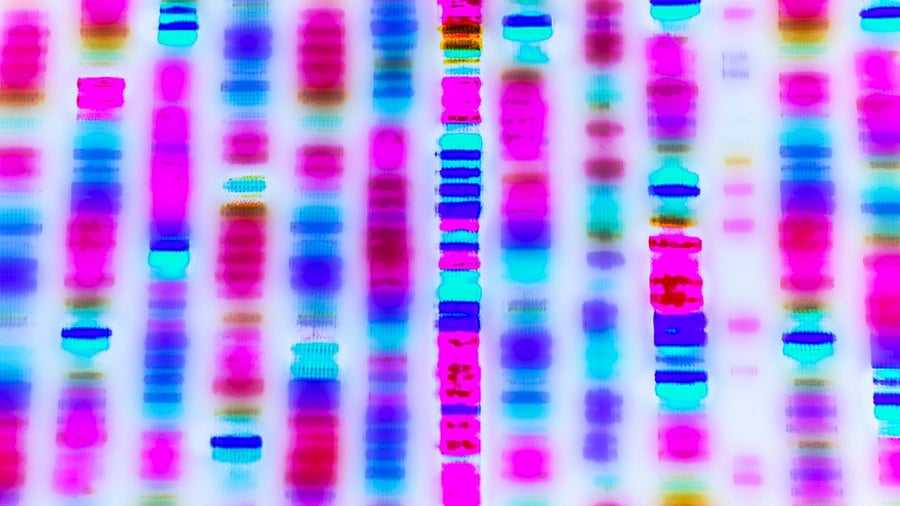
Genetic sequencing Representative image.
Credit: iStock Photo
Hyderabad: In a groundbreaking study that illuminates the genetic landscape of India's diverse populations, researchers from the Centre for Cellular and Molecular Biology (CCMB) have uncovered critical insights into how marrying within small communities contributes to population-specific genetic diseases.
Led by CSIR Bhatnagar Fellow Dr K Thangaraj, the research team analyzed 281 high-coverage whole exome sequences from four anthropologically distinct populations, revealing the profound genetic consequences of endogamy—the practice of marrying within a small, closely related community.
The comprehensive study, recently published in the Journal of Genetics and Genomics, made several significant revelations.
“We have analyzed 281 high-coverage whole exome sequences from four anthropologically distinct populations. We examined several key factors, such as extent of inbreeding and novel genetic variants in populations. We also looked pharmacogenomic markers that influence drug metabolism to understand why different drugs seem to work differently in different populations,” said Dr Pratheusa Machha, lead author of the study.
One of the key findings of this study was identifying that the widespread prevalence of ankylosing spondylitis, a type of arthritis that causes inflammation in the joints and ligaments of the spine, is linked to the HLA-B27:04 risk allele, a genetic variant that increases the likelihood of developing a disease.
“We found a high incidence of ankylosing spondylitis disease in the Reddy community, who dwell in a specific geographical region of Andhra Pradesh”, said Dr Sarath Chandra Mouli Veeravalli, Rheumatologist from Krishna Institute of Medical Sciences, Hyderabad, and one of the authors of this study.
In addition, the authors found a significant number of disease-causing genetic variants, many of which are unique to specific populations. This study also uncovered novel genetic variants associated with drug metabolism, with implications for personalized medicine, especially in response to some of the common drugs, such as tacrolimus (an immunosuppressive drug) and warfarin (an anticoagulant drug).
“We observed genetic variations in the genes that alter the drug response, which differ across populations, and hence provide opportunity for developing targeted drugs and improving health outcomes”, said Dr Divya Tej Sowpati, co-author of the study.
Dr Thangaraj highlighted that, “Our study forecasts the impact of endogamy in causing population specific genetic diseases and drug responses. This emphasizes the need for appropriate genetic screening, counselling and clinical care for the communities that are vulnerable to various health conditions.”
Dr Vinay K. Nandicoori, Director, CCMB said, “This study reveals a major step towards our understanding of the genetic underpinnings for India’s unique genetic architecture. This is important in the development of more effective diagnostic and therapeutic strategies”.